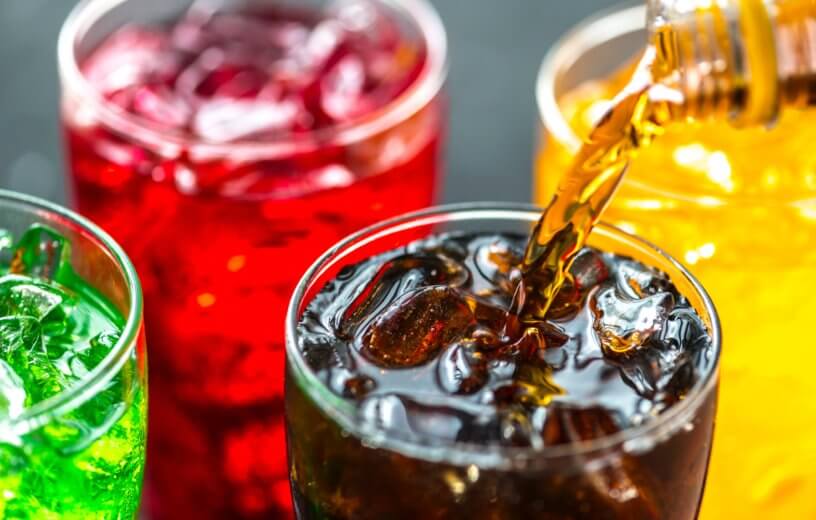FRANCE — Sugary drinks such as sodas or juices have been a staple of diets all over the world for decades. Most people who indulge in such beverages are happy to live with the extra bit of calories they may contain, but new long-term research out of France suggests that sugary drinks may also cause an increased risk of cancer.
On a global scale, more people are drinking sugary beverages than ever before. With this in mind, it probably isn’t a coincidence that the global obesity rate is also on the rise. Excess fat is already linked to higher cancer rates, but there hasn’t been much research performed on the link between sugary drinks and cancer.
So, French researchers decided to analyze the associations between drinking sugary drinks, such as 100% fruit juices and sugar sweetened beverages, and the risk of developing cancer, with special emphasis placed on prostate, breast, and bowel cancer. Researchers also assessed any links between cancer rates and artificially sweetened diet beverages.
In total, 101,257 French adults with an average age of 42 were examined. Of that number, 21% were men and 79% were women. Each adult filled out at least two dietary questionnaires that asked about their daily diet habits. These surveys were first distributed in 2009, and some participants’ diet habits were tracked until 2018, although the time periods varied depending on each person. Researchers took into account other cancer risk factors such as age, sex, family medical history, and smoking.
In all, 2,193 cancer cases were reported and validated during the study.
After analyzing all of the data, the study concluded that a 100 mL per day increase in sugary drink consumption resulted in a 18% greater chance of developing cancer in general, and a 22% increase in breast cancer risk. It didn’t seem to make a difference if participants drank juices or more processed sugary drinks like soda. There was no link found between prostate and bowel cancer, but there weren’t many reported cases of those cancer variations.
Conversely, the consumption of artificially sweetened diet beverages, did not seem to increase the risk of cancer. However, researchers say that a low number of participants reported drinking these beverages at all.
According to the study’s authors, these results indicate that the high levels of sugar found in these drinks likely contribute to the development of visceral fat surrounding important organs such as the liver and pancreas, higher blood sugar levels, and inflammation. All of these factors have already been linked to cancer development.
Additionally, additives found in many sodas may also be contributing to cancer risk.
“These data support the relevance of existing nutritional recommendations to limit sugary drink consumption, including 100% fruit juice, as well as policy actions, such as taxation and marketing restrictions targeting sugary drinks, which might potentially contribute to the reduction of cancer incidence,” the study concludes.
The study is published in the scientific journal The BMJ.
